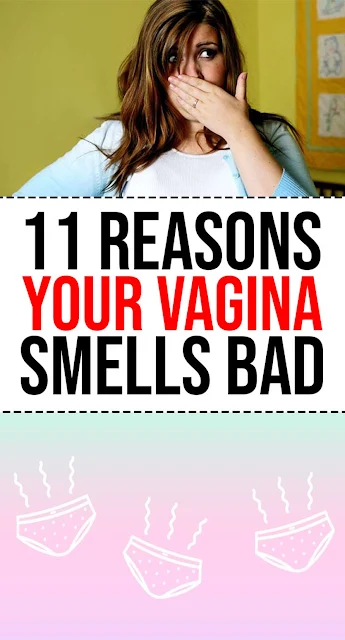As a woman, experiencing vaginal odor can be an embarrassing and uncomfortable experience. It can lead to self-consciousness and a sense of shame, which can negatively impact your confidence and overall well-being. However, it's important to remember that vaginal odor is a natural and normal occurrence to some extent. In fact, the vagina has a unique scent that can change throughout your menstrual cycle, depending on hormonal changes and other factors.
That said, there are certain situations where a strong and unpleasant vaginal odor can indicate an underlying issue that needs to be addressed. It can be an indication of poor hygiene, an infection, or even a sexually transmitted disease. It's essential to understand the potential causes of vaginal odor so that you can identify the root of the problem and seek the necessary medical attention.
In this article, we will discuss the 11 most common reasons for vaginal odor and what you can do about it. We will cover issues such as bacterial vaginosis, yeast infections, poor hygiene, tight clothing, menstrual cycles, sexual activity, certain foods, medications, hormonal changes, sexually transmitted diseases, and vaginal douching. By understanding these causes, you can make changes to your daily routine or seek medical treatment to alleviate the odor and ensure your overall vaginal health.
Here are 11 reasons your vagina smells bad and what you can do about it:
Bacterial vaginosis (BV): This is the most common cause of vaginal odor. BV occurs when there is an overgrowth of certain bacteria in the vagina, leading to a fishy odor. You may also experience discharge, itching, and burning.
Yeast infection: Another common cause of vaginal odor is a yeast infection. This occurs when there is an overgrowth of yeast in the vagina, leading to a strong, bread-like smell. You may also experience itching, burning, and discharge.
Poor hygiene: Not practicing proper hygiene can lead to a buildup of sweat and bacteria in the vaginal area, causing a bad odor. Make sure to clean your vaginal area daily with mild soap and water.
Tight clothing: Wearing tight clothing can cause sweat and bacteria to build up in the vaginal area, leading to a bad odor. Opt for loose, breathable clothing to prevent this.
Menstruation: During your period, the blood can mix with bacteria and create a bad smell. Make sure to change your tampon or pad regularly to prevent this.
Sexual activity: Semen and other bodily fluids can alter the pH balance of the vagina, leading to a bad odor. Make sure to clean the area after sex and consider using a condom.
Certain foods: Eating foods such as garlic and onions can cause a bad odor in the vaginal area. Consider avoiding these foods or consuming them in moderation.
Medications: Certain medications, such as antibiotics and steroids, can cause a bad odor in the vaginal area. Speak to your doctor if you suspect this is the cause.
Hormonal changes: Fluctuations in hormones, such as during pregnancy or menopause, can cause a change in vaginal odor. This is usually temporary and should resolve on its own.
STDs: Certain sexually transmitted diseases, such as trichomoniasis and chlamydia, can cause a bad odor in the vaginal area. Speak to your doctor if you suspect you may have an STD.
Vaginal douching: Douching can disrupt the natural balance of bacteria in the vagina and lead to a bad odor. It is best to avoid douching altogether.
If you are experiencing a bad odor in your vaginal area, it is important to speak to your doctor to rule out any underlying medical conditions. In the meantime, practicing good hygiene, wearing loose clothing, and avoiding certain foods can help alleviate the odor. Remember, every woman's body is unique, and a certain level of odor is normal. However, if the odor is overpowering or accompanied by other symptoms, seek medical attention.

